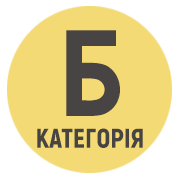THE KHARKIV PERIOD IN THE LIFE OF DMYTRO NITCHENKO
DOI:
https://doi.org/10.32782/cusu-hist-2024-1-2Keywords:
Dmytro Nytchenko, emigration, interwar period, Kharkiv, teacher, World War II, writerAbstract
The purpose of this study is to reconstruct the life of the Ukrainian writer D. Nytchenko in Kharkiv and analyze the factors that strengthened his beliefs during his stay in this city. The methodological basis of the work is the principles of historicism, objectivity and systematicity. The article is based on philosophical and special scientific methods of the socio-humanitarian and sociological sphere. The scientific novelty consists in highlighting a separate stage in the activity of D. Nytchenko. On the basis of memoirs and scientific literature, the biography of the writer during his stay in Kharkiv is reproduced, the events that happened in his life at that time and their impact on his later life are determined. Dmytro Vasyliovych Nytchenko (1905–1999) is a Ukrainian writer who lived in Australia for many years. But his formation as a nationally conscious Ukrainian took place in Poltava Oblast and Kharkiv. Based on the collected sources and publications, the following conclusions can be drawn. D. Nytchenko lived in Kharkiv for almost 15 years with a 5-month break. Before moving to this city, the man already had established ideological beliefs, formed during the years of the revolution, when he lived in Zinkov. His worldview was based on love for Ukrainian culture. Having analyzed D. Nitchenko's stay in Kharkiv, it can be divided into two periods: the first, the Soviet period - November 1927 - July 1941, and the second, the time of German occupation - December 1941 - February 1943. Important events in the writer's life took place during the first period of his stay in Kharkiv. Three key points that influenced his further life should be noted here. First, acquaintance with outstanding Ukrainian writers, communication with whom enriched the creative experience of the writer. It should also be noted his cooperation with magazines, which happened thanks to the ability to write articles, essays or sketches. Secondly, receiving a humanitarian education and, accordingly, the specialties of an interpreter and a teacher, which facilitated communication with the Germans, both during the stay in the concentration camp and during the stay in Germany. Thirdly, the creation of a family that supported the man throughout his life. In the second Kharkiv period and during the period of emigration, D. Nytchenko came in handy with the acquired knowledge in journalism and pedagogy. Thus, in our opinion, the literary and pedagogical experience, education and family status obtained in Kharkiv were of great importance in the writer's life.
References
Антипович Г. 2020. Слово Дмитра Нитченка в боротьбі за Українську Свободу. Наш Український Дім: Науково-популярний часопис для вчителів України та діаспори (Ніжин). № 1, 4–10.
Бойко Ю. Д. 1981. Нитченко як творча індивідуальність. В.: Д. Чуб Люди великого серця (статті, розвідки, спогади). Мельборн.
Гандзілевська Г., 2015, Ширяєва Т. Психологічні ідеї розвитку патріотизму у творах українських письменників-емігрантів. В: В. П. Мельник, С. Д. Максименко, В. Л. Ортинський, ред. Філософсько-психологічні аспекти духовності: соціально-економічні трансформації та відродження національної гідності: зб. тез Всеукраїнської науково-практичної конференції, присвяченої року митрополита Андрея Шептицького (20 квітня 2015 р.). Львів: СПОЛОМ, 61–64.
Історія видавництв України. Державні видавництва України. 1917–2007 рр., 2009. Київ. [Електронний ресурс]: Режим доступу: http://www.ukrbook.net/elektr_publ/istor_vydav.pdf [19.10.2023].
Мовчан Р., 2011. Методологічні особливості історичного осмислення літературного процесу 1920-х років. Науковий вісник Ужгородського університету : Серія: Філологія. Соціальні комунікації. Вип. 26. Ужгород, 9–12.
Павлишин М., 1997a. Живий Дмитро Нитченко. В: Канон та іконостас: Українська модерна література. Київ, 374–379.
Павлишин М., 1997b. З епістолярної скарбниці Дмитра Нитченка. В: Канон та іконостас: Українська модерна література. Київ, 380–383.
Рибальченко Р., 2014. Нитченко Дмитро Васильович (літ. псевд. Ніценко, Чуб, Остап Зірчастий) (1905–2000). Харьковская эмиграция 1942–1943. [Електронний ресурс]: Режим доступу: https://proza.ru/2014/07/07/2020 [19.10.2023].
Саєнко Л., 2005. Дмитро Нитченко – письменник, видавець. Бібліотечний вісник. № 3. Київ, 50–55.
Сорока П., 1996. Дмитро Нитченко-Чуб: Літературний портрет. Тернопіль.
Титаренко Д., 2014. Мова як чинник ідеологічного впливу та інструмент політичної боротьби на території Східної України під час нацистської окупації. В: Боротьба за Україну в 1943–1944 рр.: влада, збройні сили, суспільство. Київ, 400–407.








